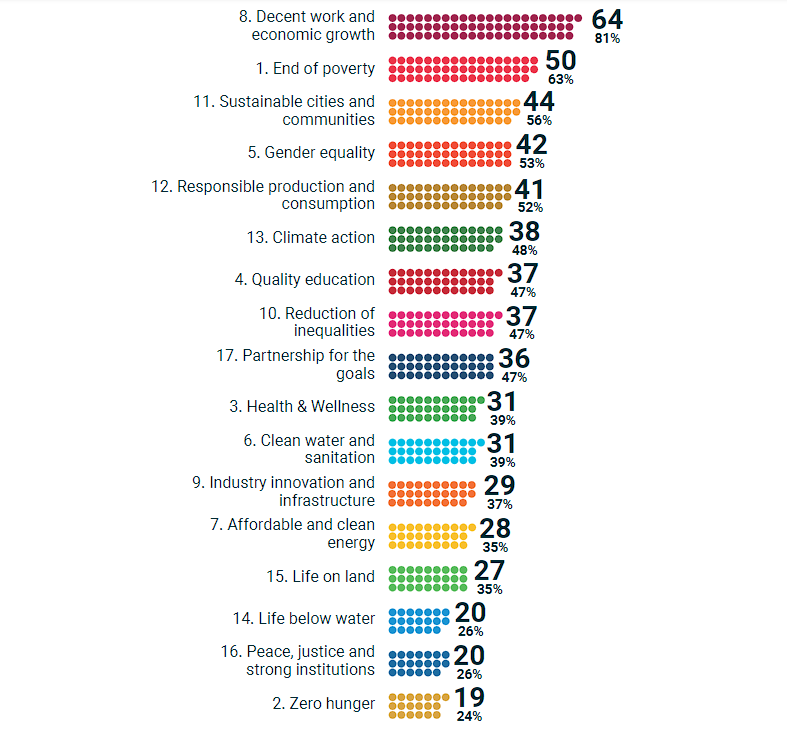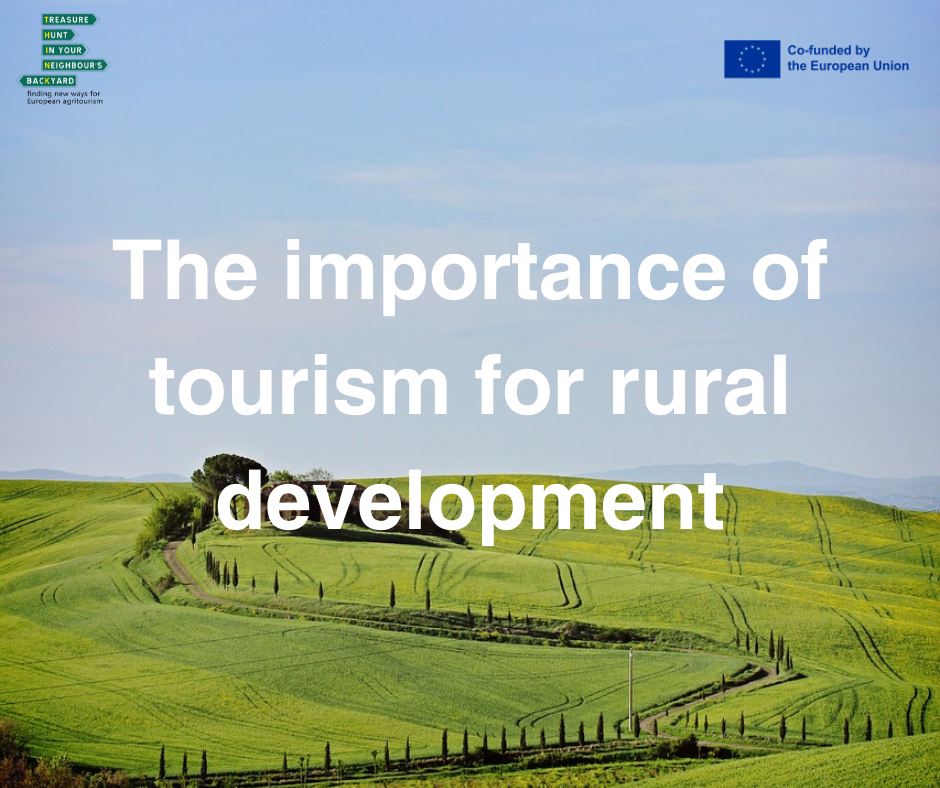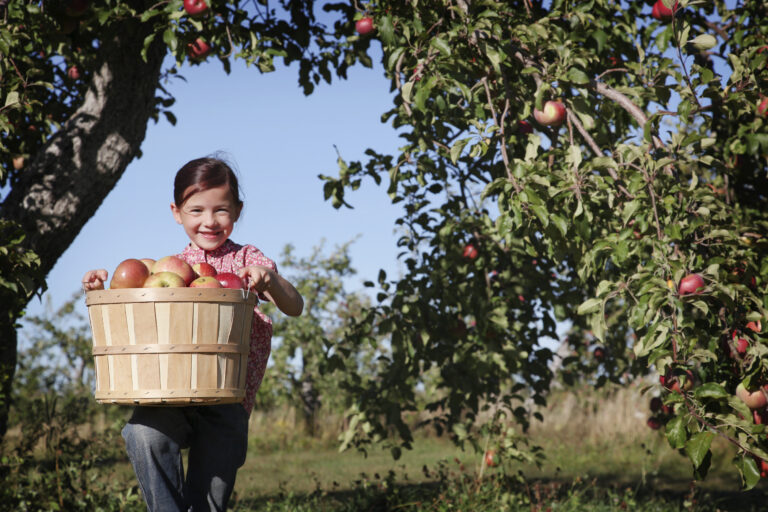Between October 2022 and January 2023, the United Nations World Tourism Organization (UNWTO) conducted a survey among its member states on the value of rural tourism and the impact of tourism in rural areas, between main challenges (infrastructure, depopulation, seasonality, competitiveness of businesses and products in rural areas) and positive aspects (job creation, preservation of natural and cultural heritage, provision of economic and social benefits). Europe, with its 19 participating countries, was the region with the highest rate of survey respondents (24%).
First of all, UNWTO defines rural tourism as “a type of tourism activity in which the visitor’s experience is related to a wide spectrum of products linked to nature activities, agriculture, ways of life and rural cultures, fishing with canes and visiting places of interest. Rural tourism activities take place in non-urban (rural) settings with the following characteristics: 1. low population density, 2. landscapes and land use planning where agriculture and forestry prevail, and 3. social structures and traditional ways of life.”
71% of responding member states agreed with this definition.
MAIN CHALLENGES
The survey underscores that the foremost challenge impeding rural development through tourism is the substantial infrastructure gap in rural areas, encompassing deficiencies in roads, ports, and airports. The remote nature and challenging terrain of many rural regions exacerbate this issue. Demographic and economic challenges follow closely, particularly depopulation resulting from migration to urban areas, seasonal fluctuations, and product competitiveness. Education and skills development pose the third significant obstacle, with a shortage of opportunities and difficulties in attracting and retaining skilled workforce talent, exacerbated by the concentration of training programs in urban centers. Additional hurdles include limitations in accessing financial systems, constraints on innovative tourism product development, adverse impacts on natural resources, and difficulties in data and knowledge management. Despite these challenges, the survey recognizes economic and social-related opportunities brought by tourism, such as job creation, livelihood improvement, and efforts to combat depopulation, as well as opportunities linked to the conservation and promotion of cultural and natural resources.

Figure 1 – Most frequently used words in definitions of rural tourism in countries responding to the survey
Source: Survey of UNWTO members states on tourism and rural development (2023)
MAIN OPPORTUNITIES
The surveyed countries identified a diverse range of opportunities for rural development through tourism. Economic and social dimensions comprised 37% of the highlighted topics, with a primary focus on job creation and improving the livelihoods of local communities. Fighting depopulation and fostering local economic development were also commonly mentioned. Conservation and promotion of cultural heritage constituted the second most frequently mentioned category, encompassing the promotion and management of cultural resources. Environmental opportunities, such as the promotion and conservation of natural resources, action for climate change, and the adoption of green energy, accounted for 16% of mentions. Infrastructure and support services, with a focus on developing or improving connectivity, constituted 14% of the topics. Tourism product development and diversification represented 11%, while opportunities for local community empowerment, particularly women and youth, constituted 4% of the responses. Overall, the identified opportunities underscored the potential for tourism to contribute significantly to rural development across various dimensions.
RURAL TOURISM AND SDGs
Member states provided insights into the Sustainable Development Goals (SDGs) considered when planning or implementing rural tourism initiatives in their respective countries. Notably, five SDGs stood out as the most prevalent among over half of the responding countries. SDG 8, emphasizing decent work and economic growth, emerged as the most significant, with 63 mentions, representing 82% of the responses. SDG 1, addressing poverty eradication, followed closely as the second most frequently mentioned goal, with 64% of countries recognizing its importance. Sustainable cities and communities (SDG 11) were highlighted by 55% of countries, while gender equality (SDG 5) and responsible production and consumption (SDG 12) garnered attention from 53% and 51% of the countries, respectively. These findings emphasize the widespread recognition of specific SDGs in the planning and execution of rural tourism initiatives, reflecting a collective commitment to fostering economic growth, poverty reduction, sustainable communities, gender equality, and responsible consumption and production.

Figure 2 – Countries considering SDGs when planning for or implementing rural tourism initiatives (number of countries, %)
Source: Survey of UNWTO member states on tourism and rural development (2023)
CONCLUSION
The survey findings underscore the considerable potential of tourism to drive economic growth and social transformation in rural areas, with job creation, economic opportunities, and the preservation of cultural and natural resources identified as key opportunities. The alignment of national plans and agendas with the priority given to tourism and rural development, along with existing mechanisms to support tourism in rural areas, emphasizes the global commitment to this sector. However, significant challenges, such as infrastructure gaps and issues in human and economic dimensions, human resources, training, governance, and financial mechanisms, pose obstacles to realizing the full potential of tourism in rural development. Urgent actions are needed to address these challenges and maximize the positive impacts of tourism. The report highlights the crucial role of infrastructure, the importance of an inclusive approach considering cultural diversity, and the need for policies promoting the economic and cultural contributions of tourism. Furthermore, it emphasizes gender equality and youth empowerment, underlining the importance of a supportive regulatory framework and showcasing successful policy initiatives that can be replicated across rural destinations worldwide.
REFERENCES
World Tourism Organization (2023), Tourism and Rural Development: A Policy Perspective, UNWTO, Madrid, DOI: https://doi.org/10.18111/9789284424306





